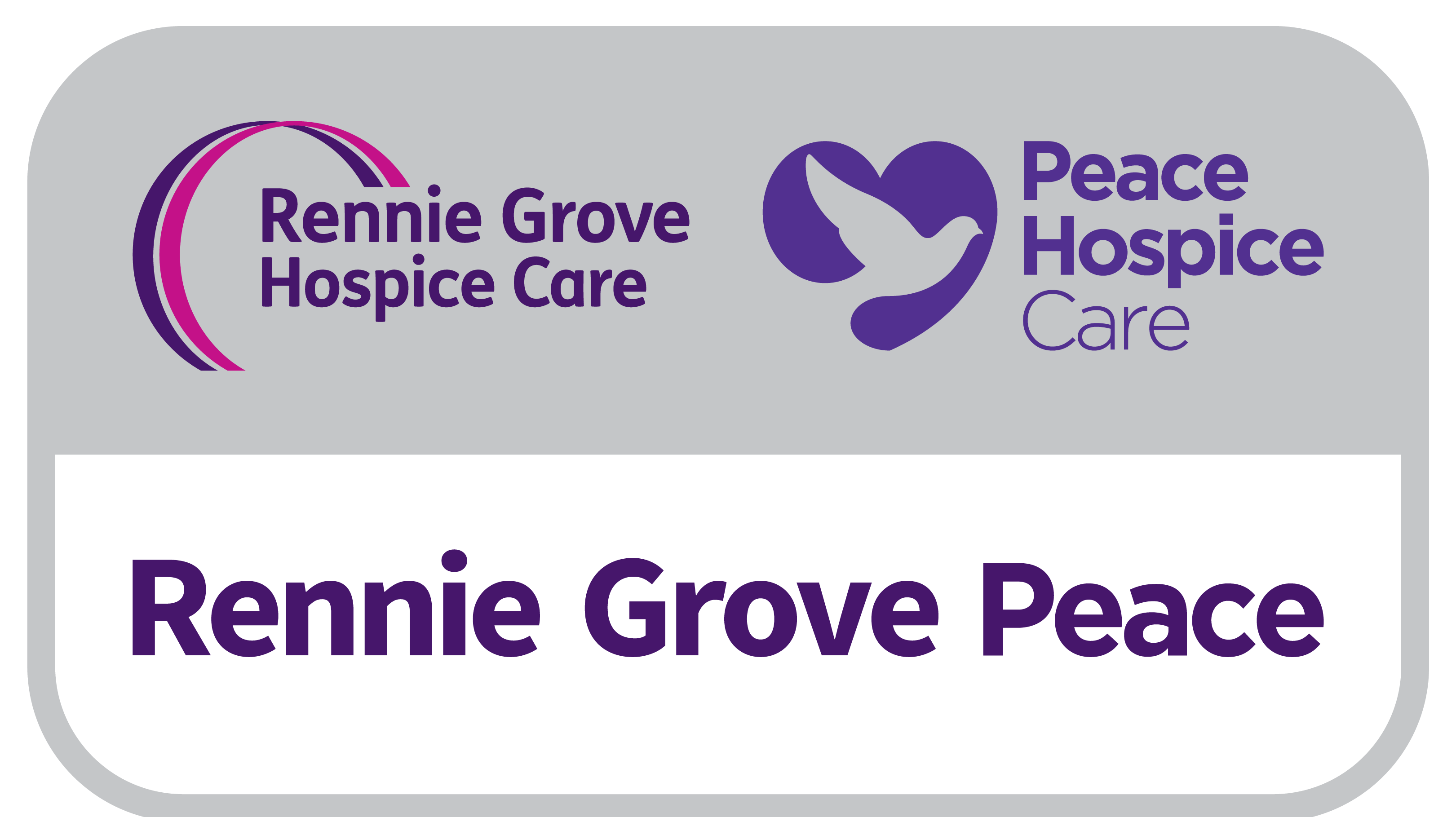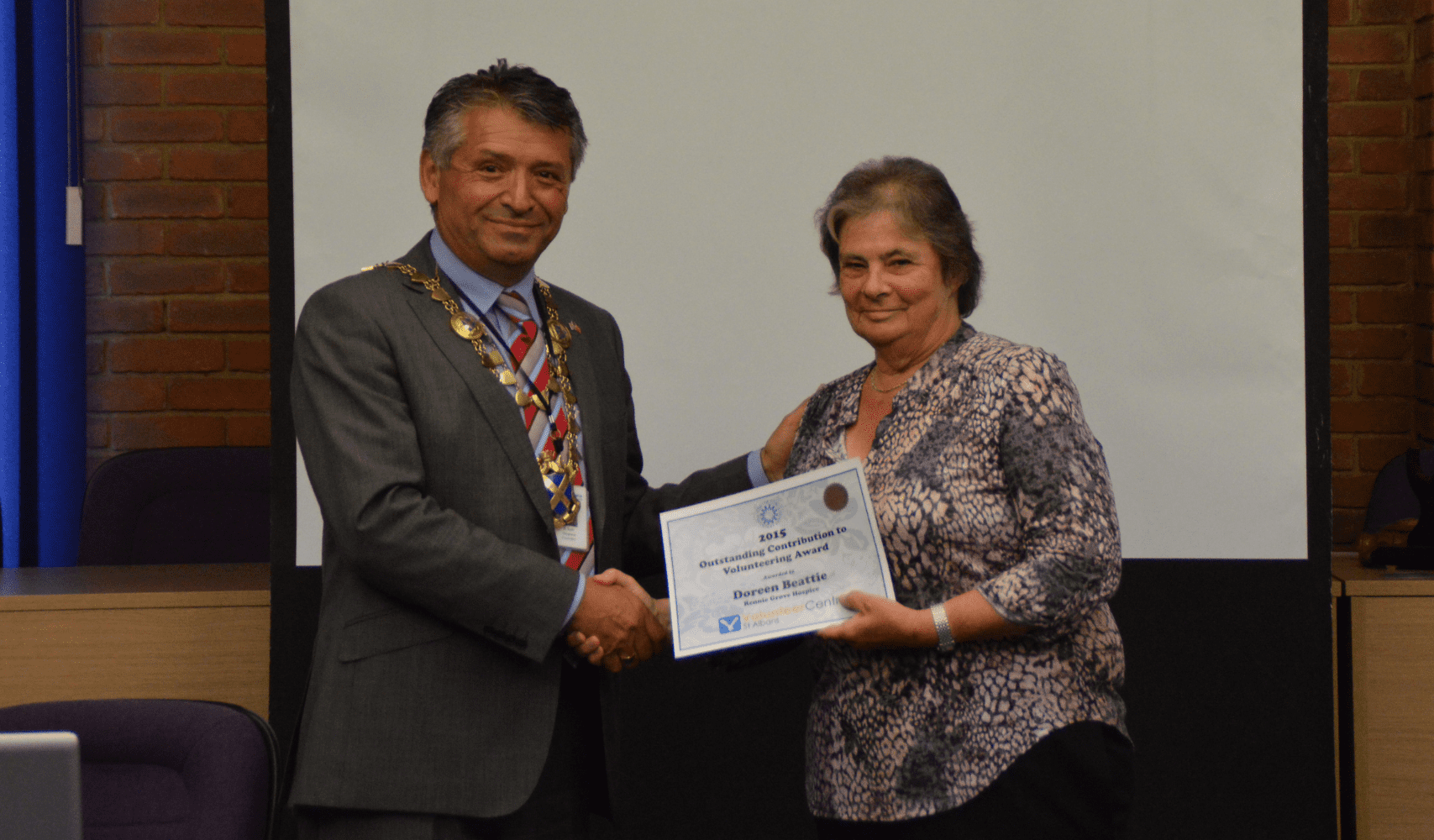“It’s an incredible privilege to be the person that someone shares their story with.” – Doreen Beattie
Doreen Beattie started volunteering with Grove House in 2009. Her time volunteering at the hospice has included multiple different roles, including the incredibly special job of writing people’s life stories.
Doreen says, “Dr Mary Groves was my GP in the late 1980s and early 1990s and I remember her telling me one time that she probably wouldn’t see me again as my GP, because she was leaving the practice to focus on another project. She told me she has noticed there was a need for additional care and support for patients with a life-limiting illness and she would be working on a project to meet that need locally.
“When I decided to take early retirement in 2009, I knew I wanted to do some sort of charity work. So I contacted the volunteering team at Grove House. I assumed I’d volunteer in something to do with fundraising because, back then, I didn’t understand the range of voluntary roles available. I met with the fundraising managers at the time, and they asked more about the job I had just finished. They asked whether I had experience of public speaking, and the answer was ‘yes’, I was very used to speaking to large groups as part of my role. I’ll never forget the look that passed between the two of them before they said, ‘we have just the job for you!’.
Spreading the word as an ambassador
“They asked whether I would become an ambassador for the charity. This meant representing the charity by giving talks to various groups and organisations about the work of the charity, to encourage them to support Grove House. I agreed and I have been doing that for a number of years.
“I remember giving a talk to a group of sixth formers at a local school. My brief from their teacher was to make it honest and frank. The teacher knew that a number of the students planned to study medicine and was keen that my talk would give them a realistic introduction to the ‘other’ side of medicine (i.e. palliative care) – which isn’t about curing patients, but about being alongside them to greatly enhance quality of life when time is limited.
Writing people’s life stories
“A few years into my volunteering, I was working with the then head of the day hospice. They had an idea for a Life Stories project. This is a project to record the stories of patients who are living with a life-limiting illness. It wasn’t something that had been done at Grove House before and she asked whether I would be interested in volunteering with the pilot scheme.
“I loved the idea. I was a writer at work, so I was confident with writing and very happy to speak to people about their lives and experiences.
“What started as a pilot to capture two or three stories really took off and we’ve now captured more than 50 stories over the years.
“In order to capture a person’s life story, I have three face-to-face sessions with them. There’s no set formula but I do find that it tends to follow a pattern that we spend the first week focusing on the person’s childhood, the second week on their early adult life – where they lived, what their job was, the family they had – and in the third week we bring it all together and talk about their life now.
“I then write this up and show the person the draft to check whether it is all accurate. At this point I ask them to bring in a collection of photos that I can include in the final story.
“A lot of work goes into each story and I absolutely love it. I enjoy seeing the person’s reaction to the book at the end but the whole process is so special, too. Sometimes a person will start by saying ‘oh, I haven’t done much in my life’ or ‘you won’t get much out of me’ and by the end we have this wonderful record of all the things they had either forgotten or discounted about their lives, and they can see what a rich, varied and interesting life they’ve led, after all.
“It’s also an incredible privilege to be the person that someone shares their story with. I once spoke to a gentleman who had fought in the war. He told me about an experience he had had, an epiphany about life during those tough years in the war, that he had never told anybody else about until then. It was such an honour to be able to capture this for him, for his family to keep forever, and that encounter has really stuck with me through the years.
The importance of listening to people
“I enjoyed speaking to people for the Life Stories project so much that I decided to train as a bereavement listener in 2021.
“I’m not a trained counsellor, but I am a listening ear for somebody to talk to. We all know that it’s often easier to talk to somebody who is removed from a situation. In the case of a bereavement, it can be hard to talk to family or friends as they are experiencing their own loss. So I’m there as an impartial person, to listen to them and help them come to their own conclusions.
The charity really values and looks after volunteers
“Throughout the years I have always found that the charity really values and looks after volunteers. I always get the impression that the organisation knows that it couldn’t achieve everything it does without volunteers and it looks after us all accordingly.”

